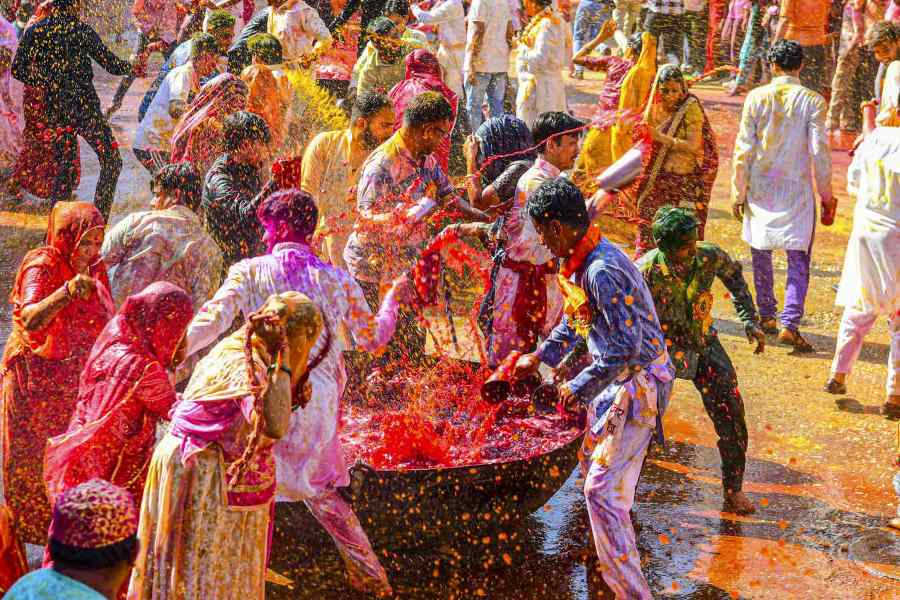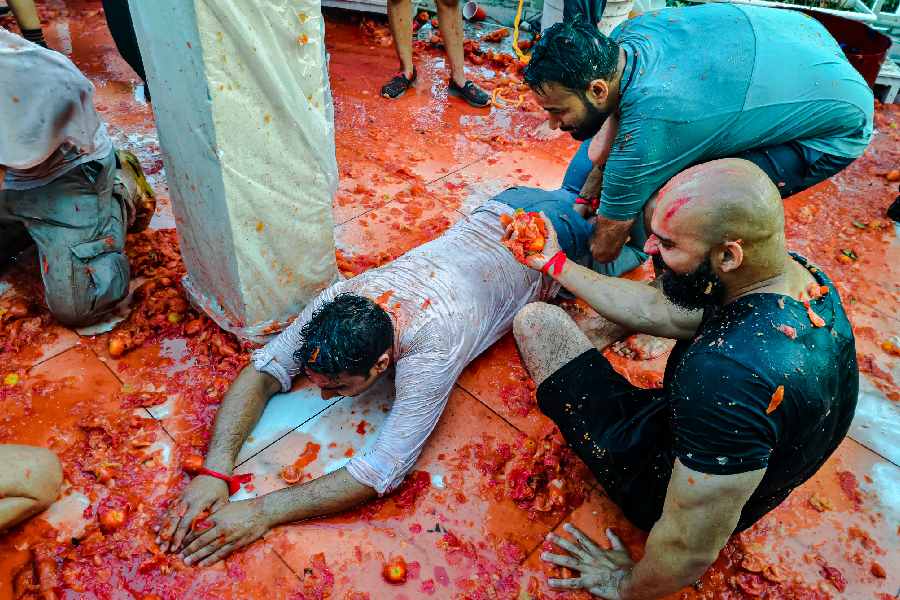 Wednesday, 04 March 2026
Wednesday, 04 March 2026
 Wednesday, 04 March 2026
Wednesday, 04 March 2026
When Prime Minister Narendra Modi welcomed his British counterpart Keir Starmer in Mumbai this week, he did what he does best: Called him a friend.
"It was a delight to welcome my friend, PM Keir Starmer at the Raj Bhavan in Mumbai," Modi wrote on X.
"Being his first visit to India, it is surely a special occasion. The presence of the largest business delegation to India makes it even more special and illustrates the strong potential of India-UK ties."
That single word, friend, has been Modi's signature diplomatic greeting for world leaders.
Starmer and Modi’s meeting took place in Mumbai, India's financial capital, where Starmer arrived with the largest-ever UK business delegation, chancellors, and cultural leaders and over 100 CEOs and entrepreneurs.
"The prime minister and I also discussed the need for a just and lasting peace in Ukraine, the need for stability and security in the Indo-Pacific, and the need to co-operate in critical areas like climate and energy, including breaking away from dependence on fossil fuels," Starmer said after the meeting.
His choice of words peace, stability, co-operation was subtle as he spoke of "breaking away from dependence on fossil fuels" while sitting next to a leader whose country continues to buy Russian oil, indirectly funding Vladimir Putin's war effort.
Modi, ever the careful friend, said he wanted the Ukraine conflict to end through "dialogue and diplomacy."
The friend in Moscow
Just a month ago, Modi was walking hand in hand with Vladimir Putin at the Shanghai Cooperation Organisation (SCO) Summit in Tianjin, China.
The two leaders' warmth was on full display, handshakes, hugs, long conversations even as US President Donald Trump slapped high tariffs on India over its continued purchase of Russian oil.
Putin reportedly waited 10 minutes for Modi so they could ride together to the bilateral hall.
Videos of them strolling together, laughing alongside Chinese president Xi Jinping, went viral.
The New York Times called the moment a "smiling manifestation of a troika" , one that Russia had long hoped to revive. It noted how such overt bonhomie would have been unthinkable for India's "risk-averse bureaucracy," which typically avoids upsetting the US.
NBC News said Modi's closeness with Putin and Xi could be seen as a "rebuke" to Trump. CNN's headline summed it up as "Xi and Modi talk friendship in a chaotic world as Trump's tariffs bite."
For India, these were not just photo ops, they were statements.
"Our bilateral relationships with various countries stand on their own merit and should not be seen from the prism of a third country," the foreign ministry said later, in what sounded like a polite reminder to Washington.
India continues to seek S-400 defence systems and possibly Su-57 fighter jets from Russia while showing no interest in the American F-35s that Trump has been eager to sell.
The friend in Washington (with conditions)
Still, Trump insists the friendship is intact even if a bit bruised.
"I'll always be friends with (Narendra) Modi... He's a great Prime Minister. He's great. But I just don't like what he's doing at this particular moment," Trump said in the Oval Office on September 5, 2025.
"But India and the United States have a special relationship. There's nothing to worry about. We just have moments on occasion."
Moments, indeed.
Trump also said he was "very disappointed" that India continued to buy "so much oil" from Russia. "We put a very big tariff on India, 50% tariff, a very high tariff. I get along very well with Modi, he's great. He was here a couple of months ago," he said, responding to a question about whether he had "lost" India to Russia and China.
But for Modi, friendship clearly doesn't mean obedience.
Whether it's "my friend Starmer" or "my friend Putin," Modi's foreign policy language has long revolved around the idea of personal rapport.







